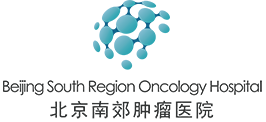Glioblastoma Multiforme (GBM) is one of the most deadly cancers, and nearly all patients experience recurrence upon the current standard of care for newly diagnosed GBM. The recurrent GBM (rGBM) exhibits a median survival of less than 8 months with limited therapeutic options.
TX103 is a CAR-T cell therapy drug that targets B7-H3, independently developed and authorized with Chinese and international patents. The preliminary clinical results of TX103 treatment for recurrent gliomas have been presented at the American Society of Clinical Oncology Annual Meeting (ASCO) in 2024(NCT05241392).
Methods: This is an open, single-arm, “3+3″ dose-escalation and multiple-dose study. The primary objective was to evaluate the safety and the maximal-tolerated dose. Secondary objectives included survival outcomes, tumor responses, immunological responses, and pharmacokinetic parameters. Patients aged 18 to 75 were enrolled with confirmed recurrence by image scan and B7-H3 expression >= 30% by immunohistochemistry analysis. TX103 was administered intracavity and/or intraventricularly to patients via an Ommaya reservoir. TX103 was given biweekly to patients each cycle at dose levels 1, 2, and 3 (20, 60, 150 million cells, respectively), with four cycles as one course.
Results: Between March 2022 and January 2024, 13 patients received at least one intracranial infusion of TX103, with 3, 4, and 6 patients in dose levels 1, 2, and 3, respectively. The median number of infusion cycles was 4 (Min, Max 1,9). All patients were included in the safety analysis, revealing no dose-limiting toxicity or CAR-T treatment-related death. All patients experienced at least one adverse event (AE), and the treatment-related AEs (TRAEs) included cytokine release syndrome, increased intracranial pressure (ICP), headache, epilepsy, decreased level of consciousness, vomiting, and pyrexia. Most TRAEs were grade 1-2, while three grade-3 TRAEs were observed: one case of increased ICP in dose level 2, one case of epilepsy, and another case of decreased level of consciousness in dose level 3. As of January 2024, six patients from dose levels 1 and 2 were eligible for a 12-month survival assessment; the 12-month overall survival (OS) rate was 83.3% (95% CI: 58.3%~100%), and the median OS was 20.3 mo (95% CI: 20.3~not reach). Two of the three patients from dose level 2 achieved partial and complete responses, respectively. Following CAR-T administration, significant increases in cytokines, including IL-6 and IFN-γ, and elevated copy numbers of the CAR gene were observed in the cerebrospinal fluid, while only minimal elevations were noted in the peripheral blood.
Conclusions: In this trial, treating rGBM with TX103 is deemed safe and tolerated. These interim results support further study using TX103 to enhance the survival outcomes in patients with rGBM.
At present, there are many other CAR-T clinical trials in China, and they are looking for patients. For consultation on new drugs and technologies, you can contact Beijing South Region Oncology Hospital International Department.
Phone Number:4008803716
Email:myimmnet@163.com
Post time: Dec-09-2024

